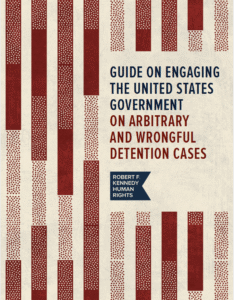The Bangladesh authorities should end the ongoing harassment and threats against activists, human rights defenders, and their families by law enforcement and intelligence agencies, four human rights groups said today.
Amnesty International, Asian Human Rights Commission, Human Rights Watch, and Robert F. Kennedy Human Rights condemned the government’s attacks on those exercising their right to freedom of expression, and its failure to comply with its international obligations to uphold fundamental rights.
The groups noted a growing and deeply concerning pattern of intimidation and threats in recent months against family members of activists, including activists who have had to flee Bangladesh for their safety. In an attempt to silence dissent, law enforcement and intelligence officers have privately visited activists’ family members and pressured them to tell their loved ones that they must stop publicly criticizing the government.
In recent days, members of the Bangladesh Police visited and interrogated several family members of a human rights defender, Pinaki Bhattacharya – the latest acts in the government’s years-long campaign of intimidation against the activist.
In July 2020, the authorities visited and threatened the family of activist and blogger Asad Noor, threatening them to pressure Noor to stop publishing criticism of the ruling party.
In April, officers visited Tasneem Khalil’s mother in her home in Sylhet to interrogate her about her son’s work as a journalist. Khalil’s news outlet, Netra News, has been blocked in Bangladesh since late December 2019. The officers threatened that if they decide to visit her home again, their approach may be “different and not nice.”
These threats against family members add to the serious concerns about the widespread crackdown on activists, journalists, and others who question or criticize the government, especially through the use of abusive laws, such as the Digital Security Act (DSA), the groups said. The government has wielded the DSA to arbitrarily arrest and indefinitely detain people on criminal charges for expressing views contrary to, or opposing, the ruling party.
Since the coronavirus pandemic hit Bangladesh, numerous people have been arrested, detained, and even forcibly disappeared for calling into question the government’s response. Together, all of these measures to threaten activists and their families create a climate of fear and undermine the necessary protections for civic space.
Bangladeshi authorities should independently and impartially investigate these allegations of harassment, hold members of security forces accountable for their actions, and put an end to the intimidation of family members of activists and those exercising their right to freedom of expression.
For more Human Rights Watch reporting on Bangladesh, please visit Human Rights Watch.
For more information, please contact:
For Human Rights Watch, in San Francisco, Brad Adams (English): +1-347-463-3531 (mobile); or adamsb@hrw.org. Twitter: @BradMAdams For Human Rights Watch, in London, Meenakshi Ganguly (English, Bengali, Hindi): +91-9820-036032 (mobile); or gangulm@hrw.org. Twitter: @mg2411
For Robert F. Kennedy Human Rights, in Washington, DC, Minhee Cho, Media Relations Associate (English): mcho@rfkhumanrights.org.
For Asian Human Rights Commission, in Hong Kong, Mohammad Ashrafuzzaman (Bangla & English): +852-6073-2807 (mobile); or zaman@ahrc.asia. Twitter: @humanrightsasia




